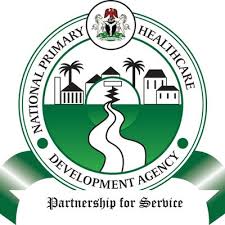Director-general of the National Primary Health Care Development Agency (NPHCDA), Dr. Muyi Aina, has called for a significant acceleration in efforts to improve primary health care services across the nation.
While acknowledging that some progress has been made, he emphasised that the current pace is insufficient to meet the agency’s goals.
“We are making some progress but are still moving too slowly towards where we need to be.
“Our mandate over the next short period is to build on the work done before us and accelerate progress towards the desired outcomes,” the DG stated during a recent meeting
During the meeting, the DG reiterated the core priorities of the agency and highlighted the mechanisms in place to achieve them. He pointed out that approximately 500 Primary Health Care (PHC) centers are currently being revitalised, with plans to refurbish an additional three to four thousand centers across various states in the coming year.
He also shared encouraging news about the increased access to basic health services in the country.
“There has been a 15 percent increase in immunisation coverage compared to last year, and antenatal care services are also seeing a rise in utilisation. Despite these gains, he stressed that there is still much work to be done in many areas.
“We are not where we need to be in many of the areas, but we are building transparency in what we are doing. We are also building communities that will enable partnerships to help us share our stories,” Dr. Aina noted.”
He praised the Universal Health Coverage (UHC) forum, a collective of Civil Society Organizations (CSOs), as an “incredible partner” in the agency’s efforts to make public health services more accessible to Nigerians.
The partnership, he said, is vital in achieving the health sector priorities under the leadership of the coordinating minister of Health and Social Welfare, Prof. Ali Pate, and in fulfilling the mandate of President Bola Tinubu.
In a related development, the co-convener of the UHC Forum, Dr. Garfa Alawode, remarked on the improved understanding of how the NPHCDA will collaborate with stakeholders to enhance financing and align around common priorities.
However, he also highlighted the challenges posed by local government area (LGA) autonomy as it affects primary healthcare.
“There are some divergent views on how to approach LGA financial autonomy, but what came out clearly is the need for a policy analysis to understand the issues better,” Garfa said.
He underscored the importance of involving civil society in discussions on handling these challenges and stressed the need to translate discussions into concrete actions.



